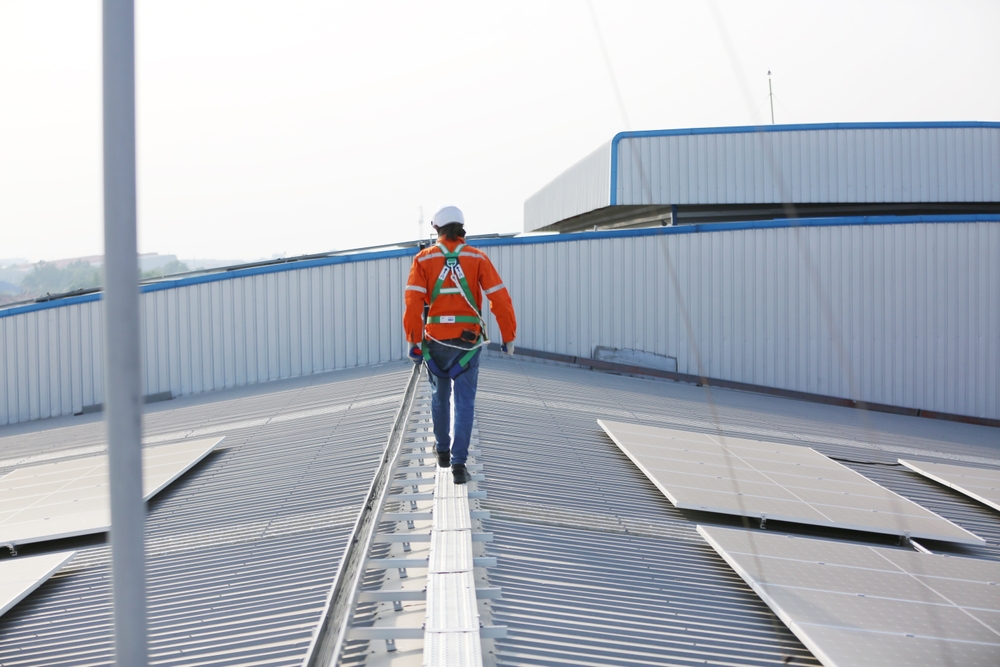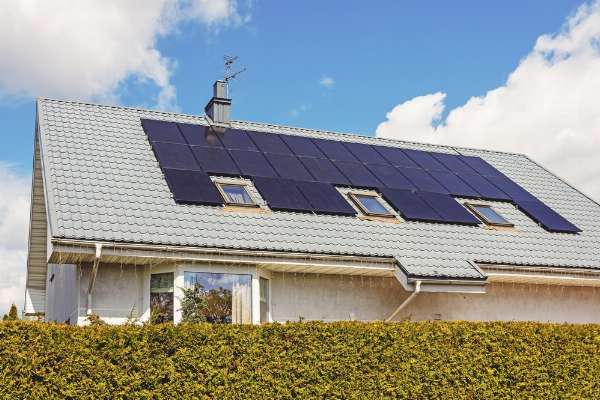Solar electricity is generated in two ways: utility-scale farms and residential solar. While national utility-scale solar projects slowed down over the past year due to supply chain constraints, residential solar is booming due to higher electricity costs. Consumers want to take their power bill into their own hands, and homeowners in sunny states like California, Texas, and Florida are leading the pack.
If you’re eyeing solar options for your new home, here are some of the most common misconceptions to be aware of before you dive head-first into a big commitment.
What Do You Mean, Misconceptions? Don’t You Mean Scams?
Solar scams aren’t as much about outright lying as they are about overpromising. There’s a ton of excitement around renewable energy, and if you’re armed with the facts about solar, it’s easier to navigate jazzy sales talk and focus on what differentiates one solar provider from another. As you review your local solar contractors, be aware of the following jargon.
‘Your electric bill will be eliminated!’
Many residential solar contractors will entice new customers with ads stating that your electric bill will be eliminated once you install solar panels. It’s not as simple as that. While solar power can make a dent in your monthly bill, there’s no guarantee that the panels will generate enough electricity to power your home. This is because it depends on how much power you use.
For example, if it’s the middle of the summer and you’re running your air conditioner like crazy, you’re more than likely going to have an electric bill. High usage is high usage, regardless of whether you have solar or not. Solar panels don’t make your electricity consumption mysteriously disappear.
‘The federal government will reimburse you.’
Over the past 15-plus years, the federal government has reimbursed residential solar systems at varying rates. From 2022 to 2032, the reimbursement rate via the Investment Tax Credit (ITC) is 30 percent of a residential solar system. That means if your system is $20,000 to install, you’ll receive $6,000 back as a tax credit.
One differentiation to keep in mind is that the ITC is a deduction, not a refund. You have to owe money on your taxes in order to offset what you owe with the deduction. If the federal government owes you $5,000 and you still have a $6,000 ITC credit, that ITC credit will roll into your taxes for the following year. Don’t expect to take that refund and put it in your pocket as cash, and be wary of any contractor who doesn’t go into in-depth detail about these subsidies. If you’re promised a cash-in-hand refund from the government, that contractor is not being honest with you.
‘Between the state and federal government refunds, your system is free.’

Many states and territories have their own individual incentives in place for residents to install solar systems on their homes. However, these funds are not always guaranteed. A state can have a very robust incentive program one year that reimburses a good chunk of a solar system’s cost, but within two years that program could be tapped out. It’s extremely important to know what your timeline for installation and state incentives may be. That ensures that you’re maximizing what’s available to you.
At this point, state incentives for residential solar hover between 10 to 20 percent. So even with the maximum state reimbursement plus the federal reimbursement, you’ll still need to pay for half of your solar system. Be mindful of the fact that a state incentive is usually only applicable to your state taxes. That rebate cannot be used to lower your federal tax burden.
‘We’ll install solar on your home for free!’
Contractors who claim that they’ll install a solar system on your home for free and bypass the tax headaches are dancing around one key idea. Residential solar systems can either be owned by an individual or leased to them by a solar company. A solar contractor may install panels on your home, but they’re going to bill you each month for your electricity bill and claim the tax benefits for themselves, since you don’t own the system.
If you’re exploring the pros and cons of leasing versus owning, be aware that you’re often going to pay less upfront to lease, but you may pay more over the long term than owning. Any contractor should clearly be able to explain to you what type of installation they’re looking to do and all of the financial considerations that come with it.
‘Solar will fit on any roof.’
This scam isn’t as much about overpromising as it is about a company not being as reputable as they should be. Any solar installer will want to inspect the quality of your roof before agreeing to anything. If your roof needs to be repaired, it’s likely that you won’t be able to install solar panels until it’s fixed. So if a provider isn’t prioritizing a roof inspection as the first part of the process, that may be an indicator of their expertise.
If you’re exploring residential solar, period, it never hurts to gather quotes and information from a variety of competitors. It’s common for contractors to provide differing costs and packages for the same services. Gathering quotes is an easy way to not only find the best deal, but also to suss out who prioritizes, say, a roof inspection over just landing the sale.
Aren’t There Advocates for Residential Solar Consumers Out There?

Many states have their own consumer advocate groups to help navigate citizens through various scams they may encounter, but not everyone does. Get an idea of who to reach out to within your state for solar consumer inquiries. For example, you can review the roadmap for South Carolina residents, which is super comprehensive. There may be commonalities for the state where you live, too.
Groups like Solar United Neighbors are also available to report marketing or sales complaints. The Better Business Bureau (BBB) is another well-known avenue to submit legitimate complaints on residential solar service that falls short of what you were promised by a sales team.
At the end of the day, remember that there are a lot of companies out there who are trying to catch their share of the residential solar market. If you’re speaking with a salesperson and some of the math feels off, resist the urge to buy right away and spend some time combing through it. Don’t let yourself get strong-armed or pressured into deadline-oriented “sales” that may not even be truthful. The decision to install solar will have repercussions for decades to come. Make a decision that you’re proud of and confident in without feeling like you’ve been preyed upon. The whole point of residential solar systems, after all, is feeling empowered by your own energy independence.


